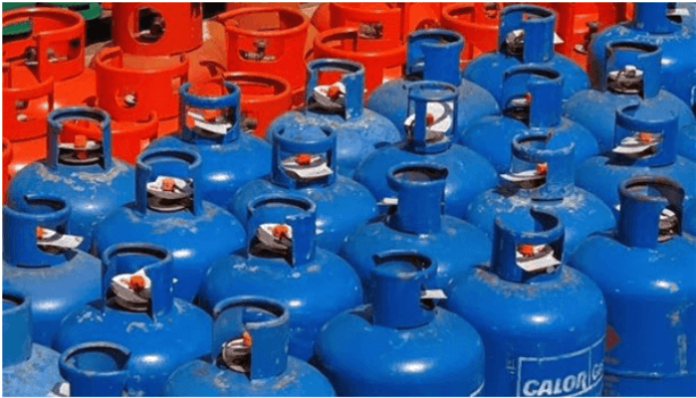The Federal Government of Nigeria has announced a suspension of all Liquefied Petroleum Gas (LPG) exports, effective November 1, 2024, in a bid to address the soaring cost of cooking gas and ease the burden on households.
This directive, disclosed by the Minister of State for Petroleum Resources (Gas), Ekperikpe Ekpo, aims to prioritise domestic supply and ensure affordability for Nigerians.
The decision followed a high-level meeting in Abuja between government officials and stakeholders from the LPG value chain. Louis Ibah, the Minister’s spokesman, made the announcement through an official statement, which highlighted the pressing issue of gas price hikes and their severe impact on Nigerian households.
Data from BusinessDay indicated a sharp rise in the average cost of refilling a 12.5kg cylinder of cooking gas, which surged from ₦9,162.11 in July 2023 to ₦14,261.57 in July 2024. Despite earlier interventions, prices have continued to climb, with the current price per kilogram now reaching ₦1,500, up from ₦1,100–₦1,250 in previous months.
The government had previously set up a high-level committee in November 2023, led by the Chief Executive of the Nigerian Midstream and Downstream Petroleum Regulatory Authority (NMDPRA), Farouk Ahmed, to find solutions to the rising prices. However, with continued fluctuations, the government has now taken the drastic step of halting LPG exports.
In the new directive, Ekpo instructed all producers, including the Nigerian National Petroleum Company Limited (NNPCL), to cease LPG exports or import an equivalent amount at cost-reflective prices if exports occur. Additionally, the NMDPRA has been tasked with collaborating with industry stakeholders to develop a domestic pricing framework within 90 days.
This framework will be based on local production costs, moving away from the current system of indexing prices against international markets such as those in the Americas and Asia.
The Minister’s statement highlighted that pegging prices to external markets had led to Nigerians paying exorbitant rates for locally produced LPG. As a long-term solution, the government plans to develop storage, blending, and distribution facilities over the next 12 months.
The export ban will remain in place until Nigeria achieves sufficient market supply and stabilises prices.
Industry experts believe that this move will provide some relief to households struggling with the rising cost of living. By prioritising domestic supply and introducing a cost-reflective pricing model, more stable LPG prices are expected to emerge in the coming months.
“The government is deeply committed to ensuring Nigerians have access to cooking gas at affordable prices,” the statement read, underscoring the administration’s focus on addressing the rising cost of essential commodities.













